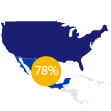Mexican issuers have an untapped opportunity to offer card products and run marketing campaigns that better meet customer needs when they travel or shop abroad.
- Mexican travelers took an average of three leisure trips in the past two years and spend 30 percent more than average when traveling
- They still use cash and checks for at least 30 percent of trip bookings and 39 percent of destination purchases1.
Nearly 80 percent of travel spending is on cross-border travel to the U.S. Visa Performance Solutions can help you understand cross-border behaviors and create a sound strategy that stimulates cross-border spending. Our recently launched Cross-Border Decision Engine will allow you to:
- Identify key cross-border opportunities based on portfolio and market spending patterns
- Improve cross-border marketing campaigns by targeting different profiles of cardholders with customized strategies
- Monitor cross-border trends and anticipate changes in cardholder behavior
- Increase portfolio profitability, since cross-border transactions are typically more profitable for issuers than domestic ones
Payment Types Used to Book Trips1
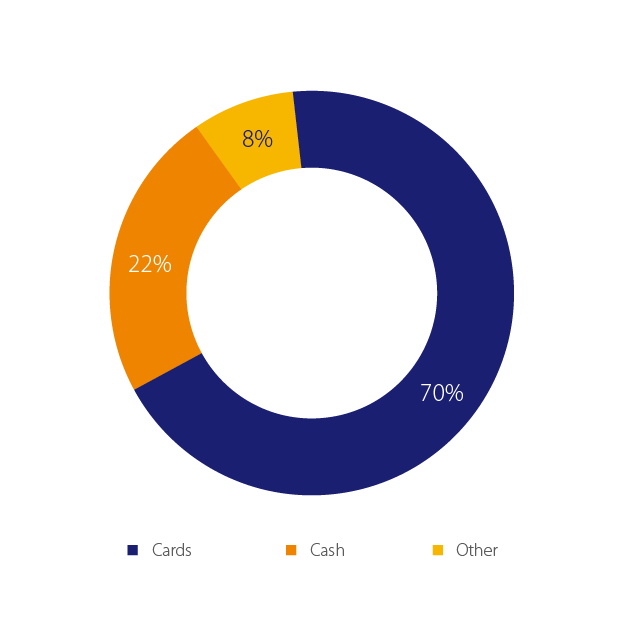
Payment Types Used at Destinations1
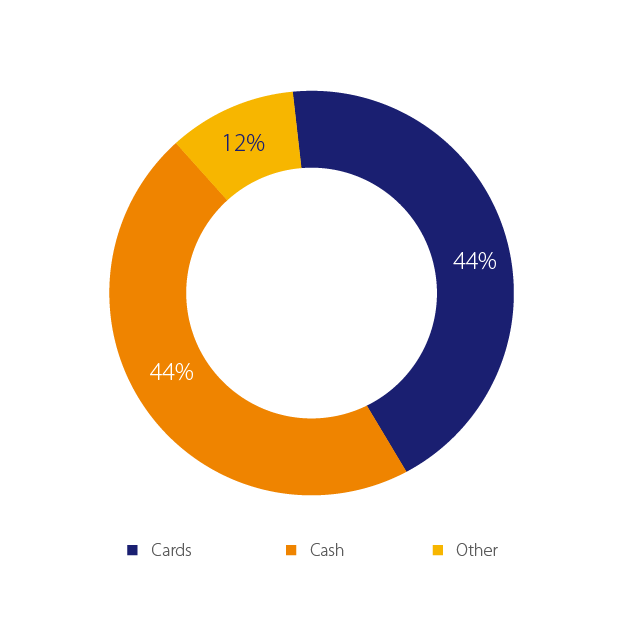
Cross-border spending behaviors and trends
Mexican travelers spend an average of $3,025 when they travel, 1.3 times the global average1. For travelers, shopping is the most popular travel activity, followed by eating at restaurants and visiting local venues.
Top merchant categories for Mexican cross-border spending
Clothing is one of the top spending categories for international card spending. Other popular merchant categories include hotels and supermarkets1.
Credit Card Spending Categories
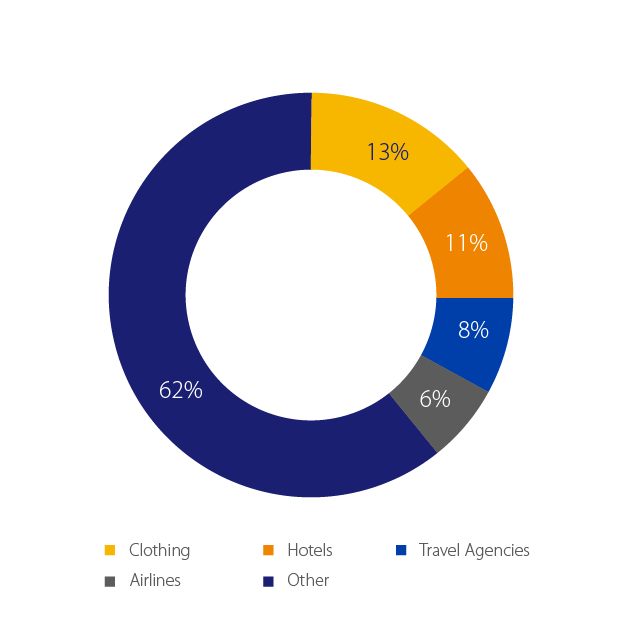
Debit Card Spending Categories
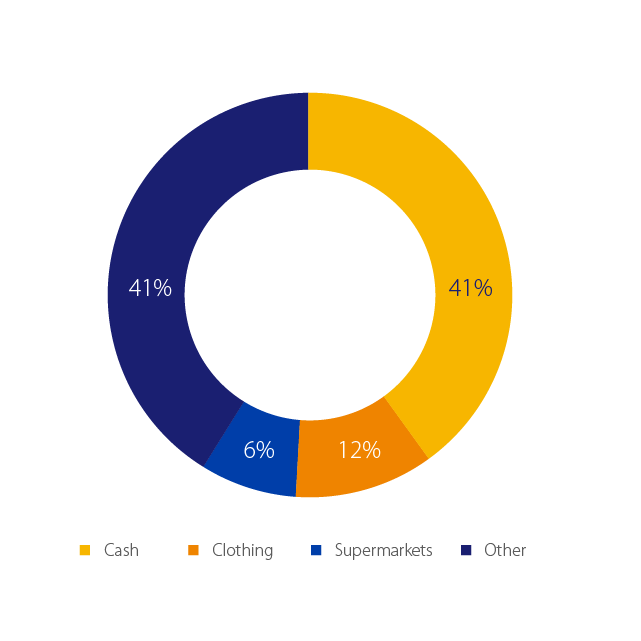
Travelers’ ages tend to be between 25-44 years old, and the United States is the most popular destination, followed by Canada and Spain1.
Key facts about cross-border spending in the U.S.2
Cities with the most card transactions
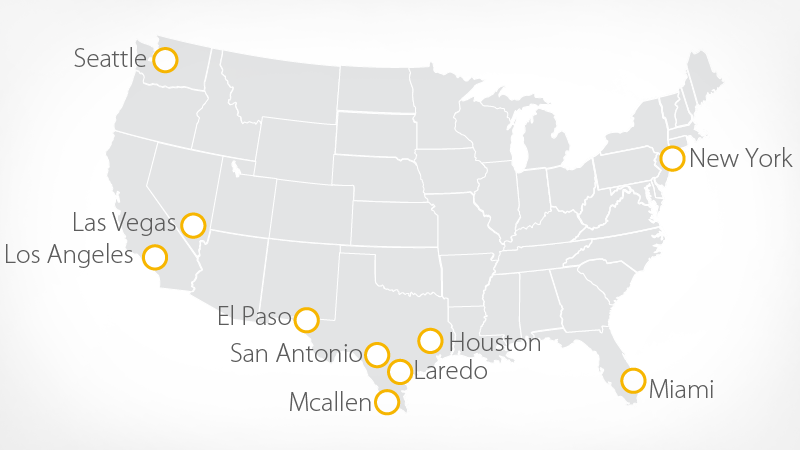
Cross-border spending for credit and debit spending is concentrated in these cities2.
- Face-to-face transactions concentrate on cities such as McAllen, Las Vegas, El Paso
- E-commerce transactions concentrate on cities such as Seattle, New York, Houston
- Credit transactions concentrate on cities such as Las Vegas, New York, Houston
- Debit transactions concentrate on cities such as El Paso, McAllen, Laredo
About 87 percent of Mexican travelers share their experience online1:
- 50 percent of travelers post photos on a private digital channel
- 43 percent of travelers update their social media status
- 41 percent communicate via instant messaging
Visa Performance Solutions can help you understand how to best capitalize on this information to develop products and design marketing campaigns that resonate with Mexican consumers engaging in cross-border purchases.
Sources
1Millward Brown Visa Global Travel Intentions Study, Tourism flows outbound in Mexico, Euromonitor 2015.
2Based on VPS analysis of VisaNet transactional data from Jan-Dec 2015. This data is reported quarterly by Visa’s clients on their operating certificates and is subject to verification by Visa. On occasion, members may update previously submitted information.
Limitation of Liability
The information, recommendations or “best practices” contained herein are provided "AS IS" and intended for informational purposes only and should not be relied upon for business, operational, marketing, financial, legal, technical, tax or other advice. When implementing any new strategy or practice, you should consult with your legal counsel to determine what laws and regulations may apply to your specific circumstances. The actual costs, savings and benefits of any recommendations, programs or “best practices” may vary based upon your specific business needs and program requirements. By their nature, recommendations are not guarantees of future performance or results and are subject to risks, uncertainties and assumptions that are difficult to predict or quantify. Assumptions were made by us in light of our experience and our perceptions of historical trends, current conditions and expected future developments and other factors that we believe are appropriate under the circumstance. Recommendations are subject to risks and uncertainties, which may cause actual and future results and trends to differ materially from the assumptions or recommendations. Visa is not responsible for your use of the information contained herein (including errors, omissions, inaccuracy or non-timeliness of any kind) or any assumptions or conclusions you might draw from its use. Visa makes no warranty, express or implied, and explicitly disclaims the warranties of merchantability and fitness for a particular purpose, any warranty of non-infringement of any third party's intellectual property rights, any warranty that the information will meet the requirements of a client, or any warranty that the information is updated and will be error free. To the extent permitted by applicable law, Visa shall not be liable to a client or any third party for any damages under any theory of law, including, without limitation, any special, consequential, incidental or punitive damages, nor any damages for loss of business profits, business interruption, loss of business information, or other monetary loss, even if advised of the possibility of such damages.
